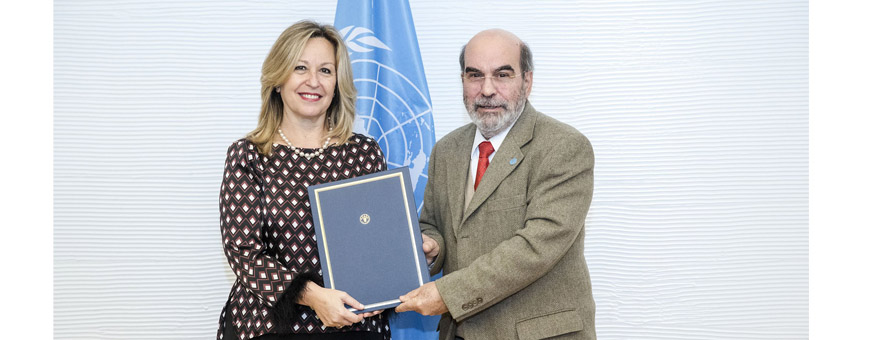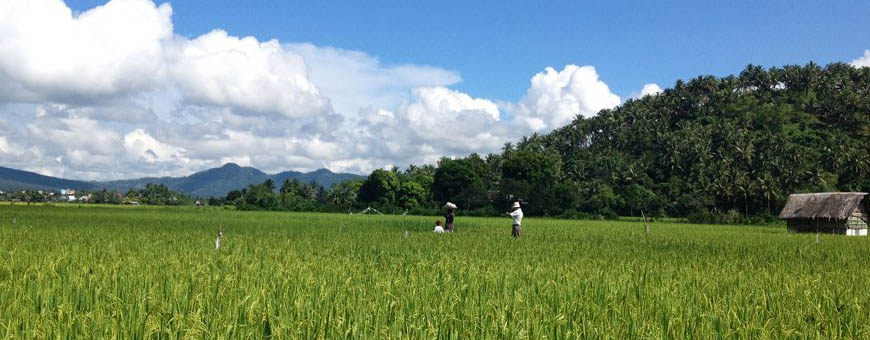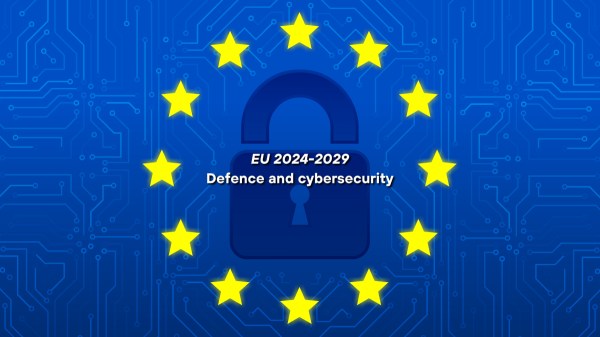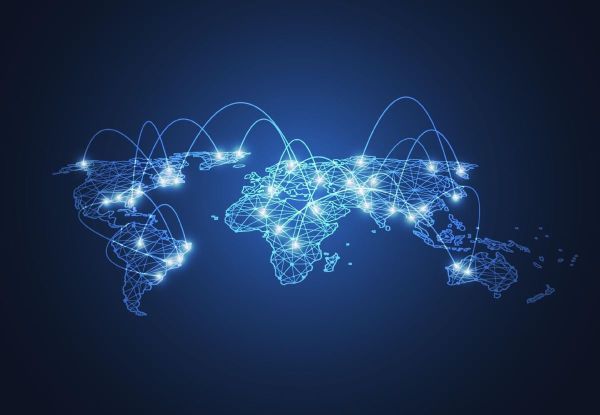RELATED POSTS

Trinidad Jiménez and José Graziano da Silva
José Graziano da Silva, General Director of the FAO – the United Nations Food and Agriculture Organization –, and Trinidad Jiménez, Global Director of Public Affairs Strategy of Telefonica have signed an alliance to collaborate in the development and implementation of innovation, digitization and data analysis initiatives in the agricultural sector aimed at promoting the development of agriculture, food safety, and nutrition. This alliance places special emphasis on the need for providing specific support to rural/agricultural local communities in terms of access to information.
This agreement has an initial duration of three years and is in line with the private sector’s key role to reach the UN’s Sustainable Development Goals. And more specifically, the role that companies such as Telefónica can play in the FAO’s strategic activities by facilitating the digital transformation of productive sectors such as agriculture, fishing, and/or forestry, as well as the management of natural resources and climate change, among others.
This collaboration is initially materialized in three specific lines of action which are already being implemented:
I. IoT solutions
In first place, both parties are collaborating in the application of Internet of things (IoT) solutions in the agricultural sector. The application of IoT solutions in this area makes it possible to optimize processes and times, and to establish systems of efficiency in the use of water resources. As Vicente Muñoz, Chief IoT Officer at Telefónica, explained_ “the Internet of Things is an enabler of digital transformation that is already starting to change the landscape of global agriculture. By taking advantage of this new technology’s benefits, we are aiding in the development of societies and favouring less use of, and greater access to, resources such as water”.
Thus, through the IoT, Telefónica and the FAO have already started a water efficiency pilot project, applying artificial intelligence algorithms developed and tested by the Telefónica Chile Research and Development Centre, which will be replicated in previously defined areas of the so-called Central American Dry Corridor. Currently, the pilot project is being developed in specific communities identified in El Salvador and Colombia.

II. Big Data and data analysis
In second place, an initiative using Big Data and data analysis is being developed with the goal of establishing early warning patterns. In this context, an analysis of how climate change affects population movements will be carried out. The initiative – whose pilot stage will be implemented in the areas of the Central American Dry Corridor and Columbian most affected by the El Niño and La Niña phenomena – includes the analysis of the crossed information between the FAO global meteorology data bank and the aggregated and anonymized mobility data registered by the Company.
III. Digital Education and Skills Development framework
Likewise, the agreement also includes an important and far-reaching Digital Education and Skills Development framework. Thus, the incorporation of the FAO educational contents to the open Telefónica training platforms is expected; these include Miríadax in the form of MOOCs (open, online, and mass courses) in Spanish, with the goal of sharing specialized knowledge in the subject and promoting the development of agri-food, nutrition, and sustainable rural development. Likewise, joint work is already being carried out in the development of specific contents with the course “Capitalization of Experiences for Continuous Training”.









